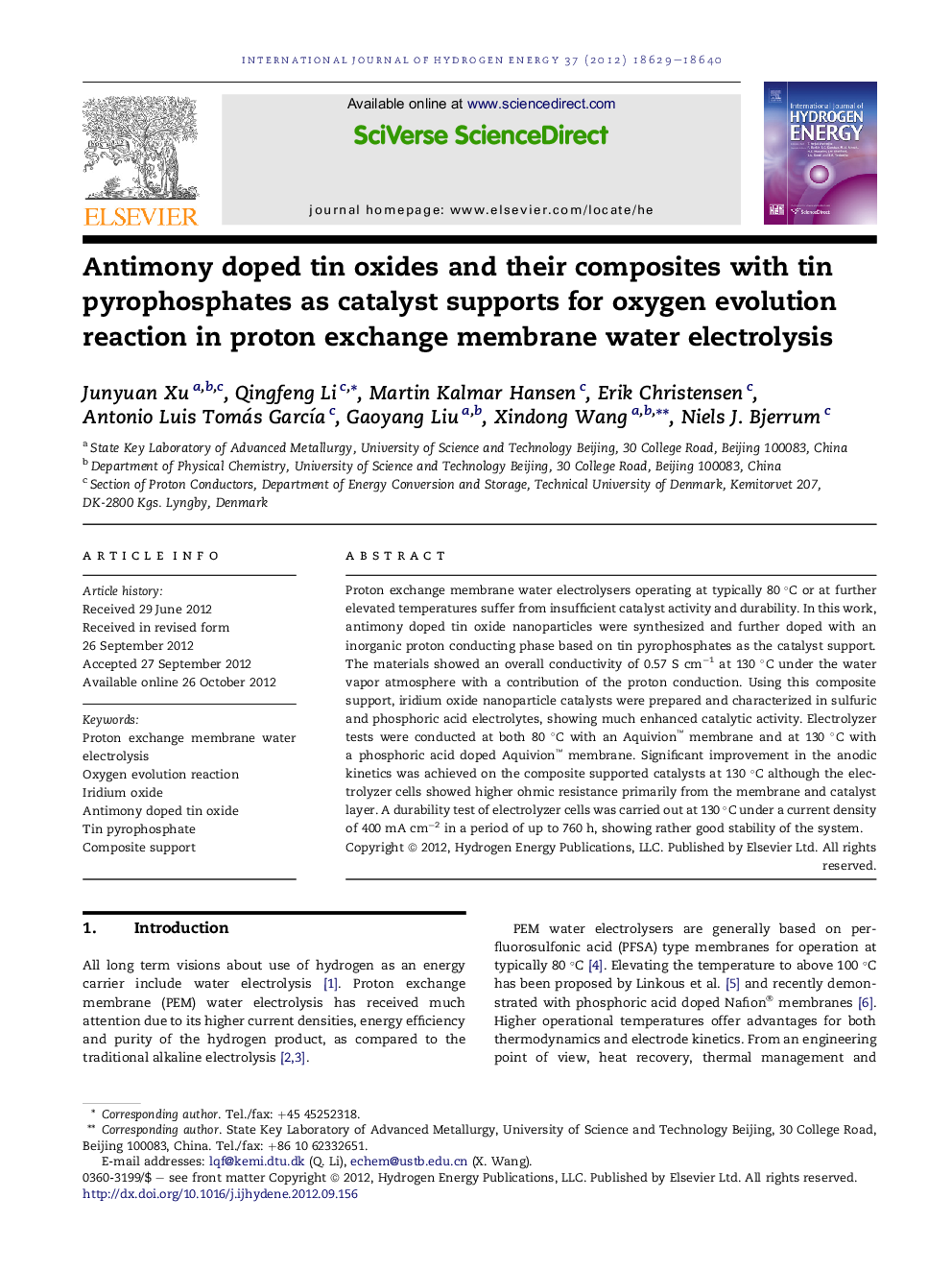| Article ID | Journal | Published Year | Pages | File Type |
|---|---|---|---|---|
| 1276068 | International Journal of Hydrogen Energy | 2012 | 12 Pages |
Proton exchange membrane water electrolysers operating at typically 80 °C or at further elevated temperatures suffer from insufficient catalyst activity and durability. In this work, antimony doped tin oxide nanoparticles were synthesized and further doped with an inorganic proton conducting phase based on tin pyrophosphates as the catalyst support. The materials showed an overall conductivity of 0.57 S cm−1 at 130 °C under the water vapor atmosphere with a contribution of the proton conduction. Using this composite support, iridium oxide nanoparticle catalysts were prepared and characterized in sulfuric and phosphoric acid electrolytes, showing much enhanced catalytic activity. Electrolyzer tests were conducted at both 80 °C with an Aquivion™ membrane and at 130 °C with a phosphoric acid doped Aquivion™ membrane. Significant improvement in the anodic kinetics was achieved on the composite supported catalysts at 130 °C although the electrolyzer cells showed higher ohmic resistance primarily from the membrane and catalyst layer. A durability test of electrolyzer cells was carried out at 130 °C under a current density of 400 mA cm−2 in a period of up to 760 h, showing rather good stability of the system.
▶ Antimony doped tin oxide (Sb–SnO2) synthesized with good electronic conductivity. ▶ Composite supports consisting of Sb–SnO2 and SnP2O7 with mixed conductivity. ▶ Iridium oxide supported on the composite materials with improved catalytic activity. ▶ Better anodic performance and good stability at 130 °C in a duration of 760 h.
